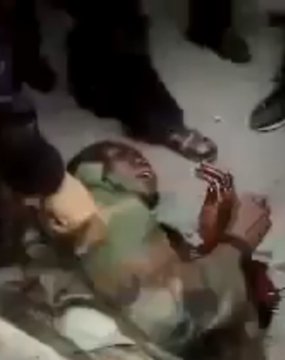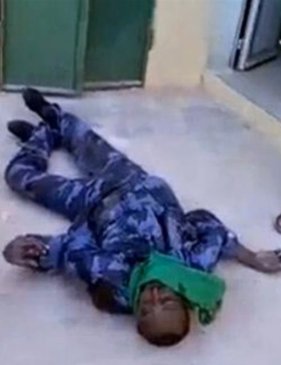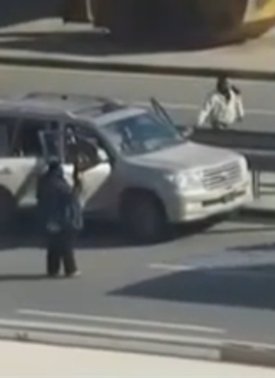|
Chad | Libya | Niger Society | Politics | Human rights African mercenaries in Libya: Fact or racism?
Since the beginning of the Libyan revolution, protesters from all over the country have reported of extreme force being used against them by the Libyan army, police forces, plain-cloth regime agents, snipers and - more and more - "black African mercenaries". The last group increasingly is described as the most brutal group.
The military government of Niger - which is currently totally focused on holding free and fair elections to end a period of democratic transition - has not commented the events in Libya or the allegations of Nigerien mercenaries. Even the Nigerien press has shown little interest in the issue. Any Nigerien government involvement in recruiting mercenaries to Libya is however totally unlikely. Meanwhile, reports from Western journalists now present in Al-Bayda and Benghazi indicate that the stories about captured sub-Saharan "mercenaries" may be exaggerated or even false. Journalists have been allowed to see some captured "mercenaries", who however were too afraid to speak to them or anybody else. Local authorities informed them that most of these Nigeriens and Chadians had originally been entering Libya on search for work. In the Sabah Oasis - in the middle of the Sahara and still loyal to Mr Ghaddafi - they had been picked up by officials and promised work in Tripoli. In the capital, they had been sent to army barracks; given arms and a large sum of money and ordered to shoot at protesters. Benghazi and Al-Bayda revolutionary authorities now felt obliged to protect these "mercenaries" against popular rage, informing journalists these Africans also were victims of the Ghaddafi regime. The "mercenaries" however have not told their own stories to journalists so far. Africans in Libya live in fear At the same time, sub-Saharan Africans still in Libya report of increased suspicions and attacks against them. Unfortunately, there has existed a basis of racism in Libya for a long time - in later years also fuelled by the Ghaddafi regime after scores of Africans crossed the Sahara to reach Libya and Europe in search of work. Sub-Saharan Africans were lowest on the social ladder and increasi
The repeated reports about "black African mercenaries" slaughtering Libyan protesters are coming from all over Libya and from exiled Libyans that have not participated in the fighting, indicating there is more to the reports, which could include prejudices against sub-Saharan Africans in general. Already on Wednesday, the UN's refugee agency UNHCR, said that the UN "has become increasingly concerned" about the many African migrants and asylum seekers in Libya. "We have no access at this time to the refugee community," said UNHCR spokesperson Melissa Fleming. "Some of the reports we are getting from third-party sources are very worrying," she added. "A journalist has passed information to us from Somalis in Tripoli who say they are being hunted on suspicion of being mercenaries. He says they feel trapped and are frightened to go out, even though there is little or no food at home," Ms Fleming said. The "mercenary" hype in Libya is already causing attacks on Africans. A Turkish construction worker told the 'BBC': "We had 70-80 people from Chad working for our company. They were cut dead with pruning shears and axes, attackers saying: 'You are providing troops for Ghaddafi.' The Sudanese were also massacred. We saw it for ourselves." Meanwhile, more worrying reports are coming from Libyan protesters, seemingly convinced African "mercenaries" are the main enemy. Only yesterday, a video was distributed over the internet showing the distribution of heavy arms to protesters to "defend themselves against mercenaries." But not all Libyan protesters pronounce hatred towards the "mercenaries". A recent video documents how protesters protect an alleged mercenary from a lynching mob after capturing him. And from the "liberated" Kufra Oasis, Libyan youths as their first action helped a large number of stranded Chadians to return to their country. By staff writers © afrol News - Create an e-mail alert for Chad news - Create an e-mail alert for Libya news - Create an e-mail alert for Niger news - Create an e-mail alert for Society news - Create an e-mail alert for Politics news - Create an e-mail alert for Human rights news
On the Afrol News front page now
|
front page
| news
| countries
| archive
| currencies
| news alerts login
| about afrol News
| contact
| advertise
| español
©
afrol News.
Reproducing or buying afrol News' articles.
You can contact us at mail@afrol.com










